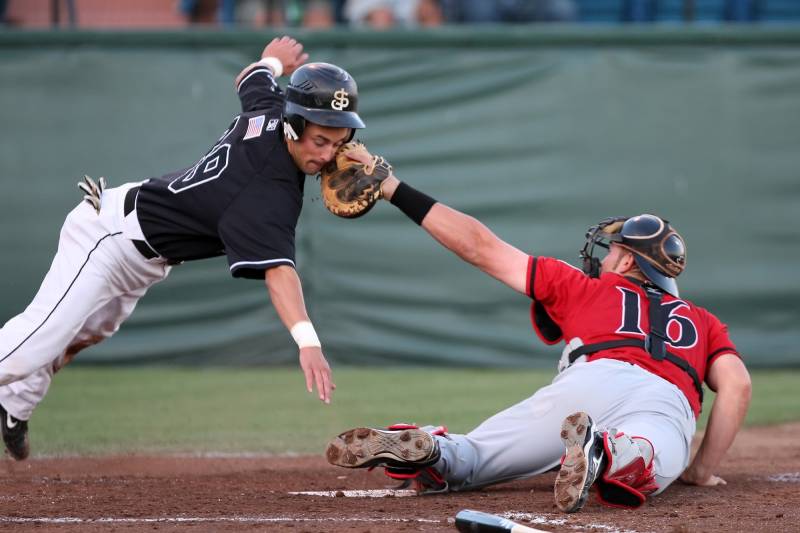“The risk was that if we couldn’t ensure that the improvements would happen, that Major League Baseball would insist the San José Giants play elsewhere. It was with that understanding and urgency that we came together and were able to work out a plan that met all three parties’ needs,” Klein said.
The result is a 25-year lease through 2050, in which the team will put up about $20 million for the required upgrades, which team officials said they need to complete by Opening Day of the 2026 season, a little more than a year away.
The city, which is currently working to close a $60 million budget gap for the current year, will reimburse DBH for about $5 million of that cost. Klein said the city will spread the payments out over seven years beginning in fiscal year 2027–28, when the city’s budget picture is expected to be a bit rosier.
“So, to keep the Giants here, invest in our stadium, it makes financially, from the city point of view as a real estate holder, a lot of sense,” Klein said.
To further help “level out the deal” for DBH, Klein told the council at its Tuesday meeting that the city will forgo all revenue it currently collects from the naming rights contracts for the stadium and video board rentals or advertisements, which is used to fund maintenance and upkeep.
Instead, DBH will keep that money, estimated at about $3 million over the 25 years of the lease. The team will also pay an increased rent of $40,000 annually, double its current $20,000, and that money will be put into a shared account the team can draw on to pay for maintenance needs, with city approval, city staff said.
Lastly, the city pledged to rent the rights to build a cell phone tower on the property to a wireless carrier, and to turn that money over to DBH, as well. Under a standard 15-year term, city staff said the telecommunications lease could generate about $675,000.
Ben Taylor, the president of the San José Giants, said the team and its ownership group are making the largest single investment in the history of the stadium.
“This agreement solidifies the ballpark for decades as a memory-making place for really what makes San José what it is, and it’s the people of this city,” Taylor said.
While the upgrades will benefit the team, it will also mean the facilities are in better shape for college and high school teams that use it, as well as for roughly 100 or more non-baseball events ranging from Chamber of Commerce barbeques to blood drives and fundraisers that are hosted there annually.
“I think the reality is that this is a community asset, and having participation from the city is recognition of that,” Taylor said.
Mayor Matt Mahan, during the council meeting on Tuesday, said the San José Giants represent the best the city has to offer, and he’s happy to see the deal come together.
“It is accessible, family-friendly fun. People are just having a good time, you see people of all backgrounds, all walks of life, and everybody is just having a good time together,” he said. “It’s a great experience that’s an important part of our history.”


